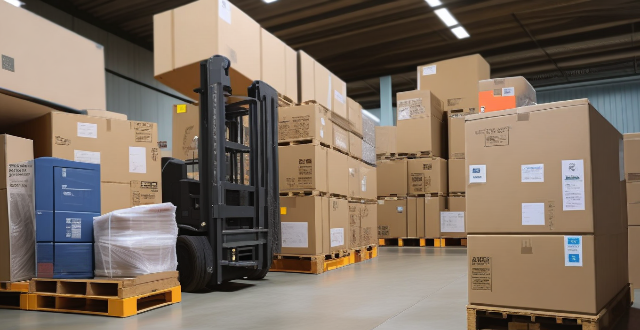When placing an order involving international shipping, consider factorsWhen placing an order involving international shipping, consider factors, choosing the right shipping method Understanding duties and taxes, knowing restrictions, preparing documentation, comparing carrier options and costs, ensuring secure packaging and accurate labeling, using tracking and insurance, coordinating with the recipient on customs brokerage and payment of duties and taxes, and having a plan for returns, damage claims, and lost shipments can help ensure a smooth and efficient process.

International Shipping Essentials: What to Know Before Placing an Order
When you're ready to place an order that involves international shipping, there are several key factors you should consider to ensure a smooth and efficient process. Here's a detailed guide to help you navigate the complexities of global logistics:
Understanding Customs Regulations
- Research Duties and Taxes: Be aware of any duties or taxes that may apply in the destination country. These can vary widely and can significantly impact the final cost of your goods.
- Know Restrictions: Some items are restricted or prohibited from being imported into certain countries. Ensure that everything you're shipping is allowed entry.
- Prepare Documentation: Proper documentation is crucial for clearing customs. This often includes invoices, packing lists, and possibly export/import declarations.
Choosing the Right Shipping Method
- Carrier Options: Consider the various carriers that offer international services, including postal services, dedicated freight companies, and global courier services.
- Shipping Times: Different methods have different delivery times. Express services are faster but more expensive, while standard services are slower and more economical.
- Cost Comparison: Obtain quotes from multiple carriers to compare costs, insurance options, and service levels.
Packaging Requirements
- Protection: Ensure your items are securely packaged to withstand the journey, which may involve multiple handling points and varying climate conditions.
- Labeling: Clearly label packages with the recipient's address, return address, and relevant customs information.
- Dimensions and Weight: Accurately measure and declare the dimensions and weight of your shipment to avoid additional charges.
Tracking and Insurance
- Tracking Options: Choose a shipping method that offers tracking so you can monitor your package's progress.
- Insurance: Consider purchasing insurance for your shipment, especially for high-value items, to protect against loss or damage during transit.
Communication with the Recipient
- Shipping Details: Share the expected arrival time and any tracking information with the recipient.
- Customs Brokerage: Inform the recipient if they need to engage a customs broker to clear the goods.
- Assistance with Duties and Taxes: Coordinate with the recipient on who will be responsible for paying any applicable duties and taxes.
Handling Exceptions and Problems
- Returns and Refunds: Understand the return policy in case the recipient wants to return the items.
- Damage Claims: Know the procedure for filing damage claims with the shipping company.
- Lost Shipments: Have a plan in place for how to handle situations where shipments go missing or are delayed beyond reasonable expectations.
By considering these aspects before placing an order, you can minimize surprises and ensure a more predictable international shipping experience. Remember, knowledge is power when it comes to navigating the complexities of global trade.